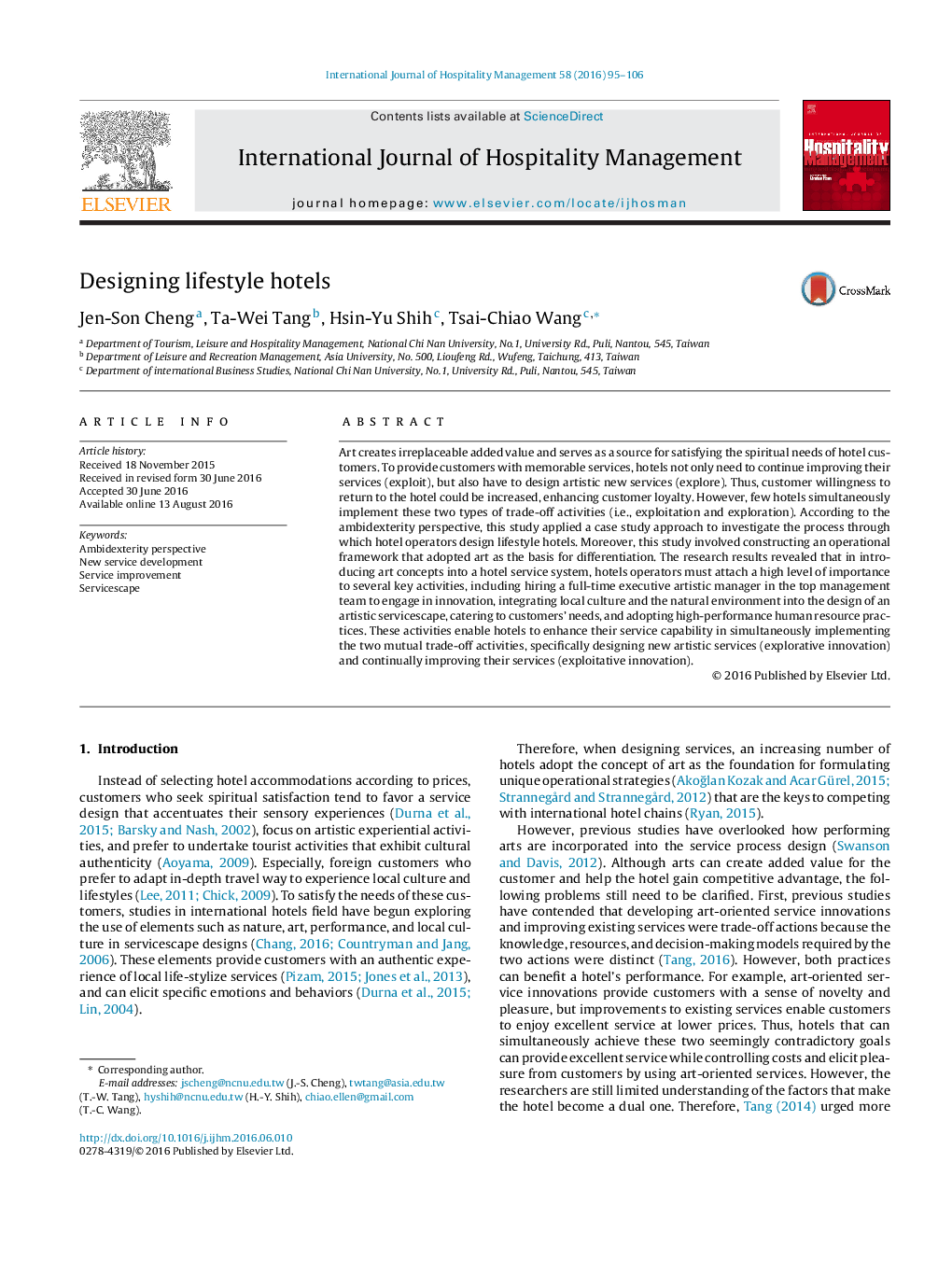| کد مقاله | کد نشریه | سال انتشار | مقاله انگلیسی | نسخه تمام متن |
|---|---|---|---|---|
| 1009144 | 1482479 | 2016 | 12 صفحه PDF | دانلود رایگان |
Art creates irreplaceable added value and serves as a source for satisfying the spiritual needs of hotel customers. To provide customers with memorable services, hotels not only need to continue improving their services (exploit), but also have to design artistic new services (explore). Thus, customer willingness to return to the hotel could be increased, enhancing customer loyalty. However, few hotels simultaneously implement these two types of trade-off activities (i.e., exploitation and exploration). According to the ambidexterity perspective, this study applied a case study approach to investigate the process through which hotel operators design lifestyle hotels. Moreover, this study involved constructing an operational framework that adopted art as the basis for differentiation. The research results revealed that in introducing art concepts into a hotel service system, hotels operators must attach a high level of importance to several key activities, including hiring a full-time executive artistic manager in the top management team to engage in innovation, integrating local culture and the natural environment into the design of an artistic servicescape, catering to customers’ needs, and adopting high-performance human resource practices. These activities enable hotels to enhance their service capability in simultaneously implementing the two mutual trade-off activities, specifically designing new artistic services (explorative innovation) and continually improving their services (exploitative innovation).
Journal: International Journal of Hospitality Management - Volume 58, September 2016, Pages 95–106
